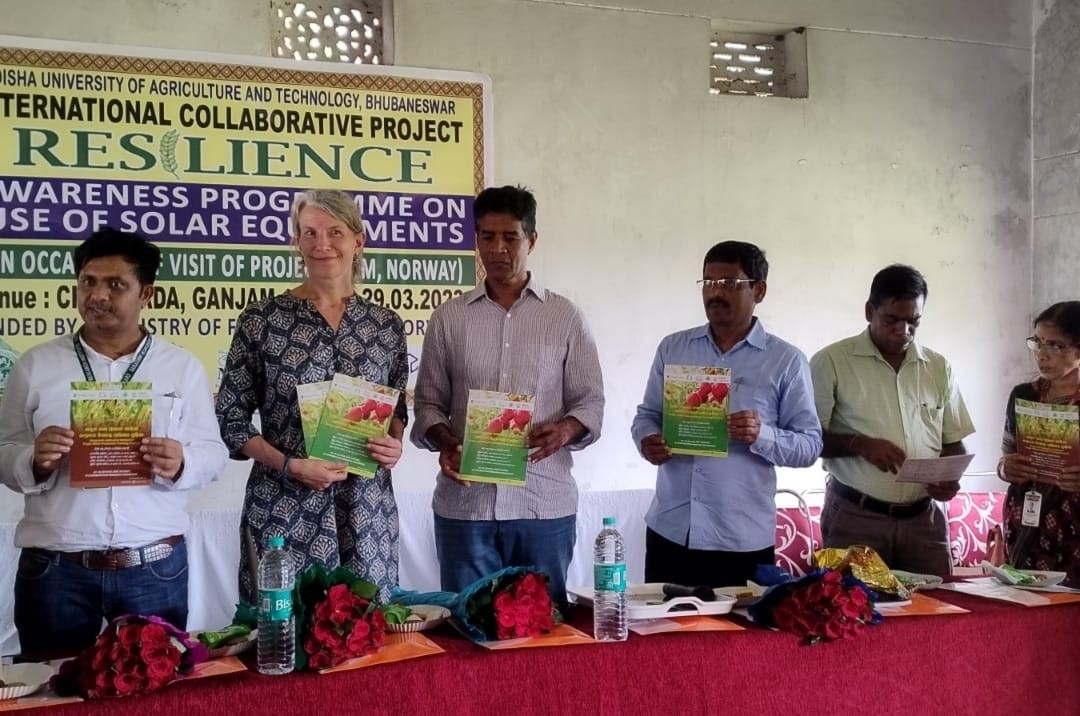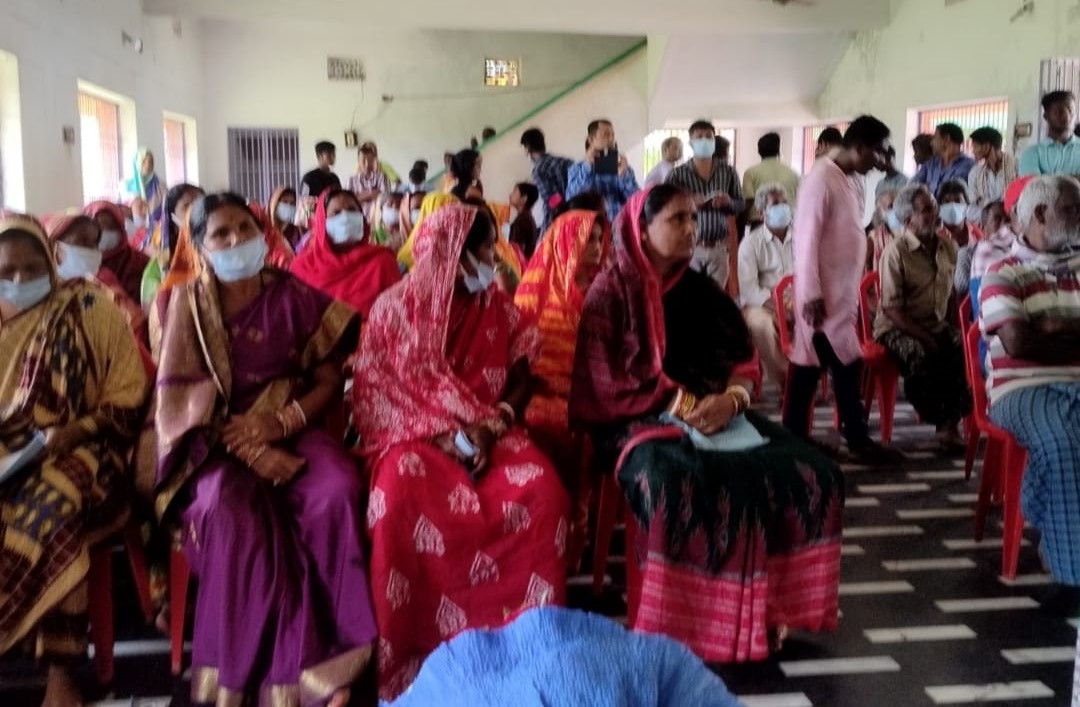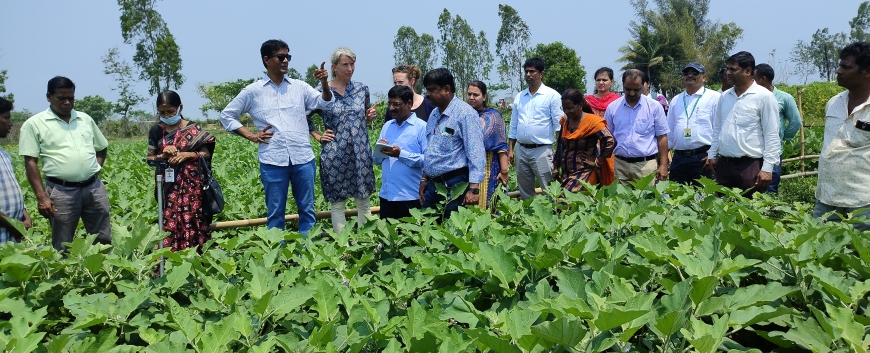Norwegian Embassy officials visited the project sites in Odisha
A team from the Norwegian Embassy included Beate Langest, Counsellor at the Norway Embassy, Dr. Udaya Sekhar Nagothu, NIBIO and Project Coordinator, Katrine Communication Officer at NIBIO, Norway, and Suresh Mathavan, Advisor at the Norwegian Embassy visited the Resilience project site in Ganjam, Odisha On March 29th, 2023. They were accompanied by project partners from Odisha University of Agriculture Technology (OUAT), M S Swaminathan Research Foundation (MSSRF), National Rice Research Institute (NRRI), and International Water Management Institute (IWMI).
During the visit, the team interacted with farmers and observed the implementation of various climate-smart technologies at the field level. OUAT and KVKs scientists demonstrated several innovative techniques, including solar pump sets, solar insect light traps, solar sprayers, solar jhatka machines for wild animal control, mulching in vegetables, nylon nets for trellis systems, integrated crop management, vermicompost, azolla, poultry units, and mushroom production. The team also witnessed the Plant Clinic programme, which provides farmers with guidance and advice on various plant health issues.
A Farmers' Interacting and Feedback Meeting was organized in the Chikarada village, where around 100 farmers and stakeholders participated. The farmers shared their experiences of how the project interventions helped them overcome climate change-related challenges and adopt good agricultural practices to increase their yields and income. Two training modules on tomato value-added products and improved cultivation methods for finger millet production developed by MSSRF was released during the interaction meeting.
The team also visited the Village Knowledge Centre (VKC) and interacted with its users. Mr. Rabindra Behara, the field coordinator, explained the VKC activities and mentioned that so far, 4200 farmers have physically visited the VKC to receive advisories and guidance on various issues related to agriculture, animal husbandry, health and nutrition, and government entitlements. The team appreciated the VKC's activities and suggested using ICT tools to connect farmers beyond the project village, enhance VKC's sustainability, and strengthen partnerships with different stakeholders, including line departments.
The visit motivated the farmers and partners to strengthen the Resilience project's goals of promoting climate-resilient agriculture and improving the livelihoods of smallholder farmers in the region.




